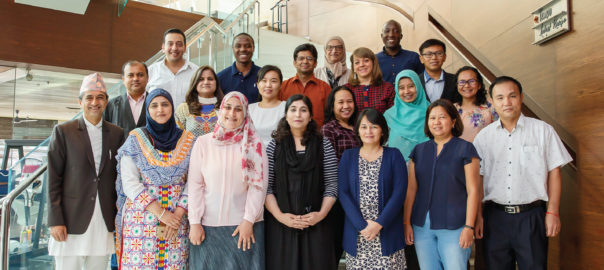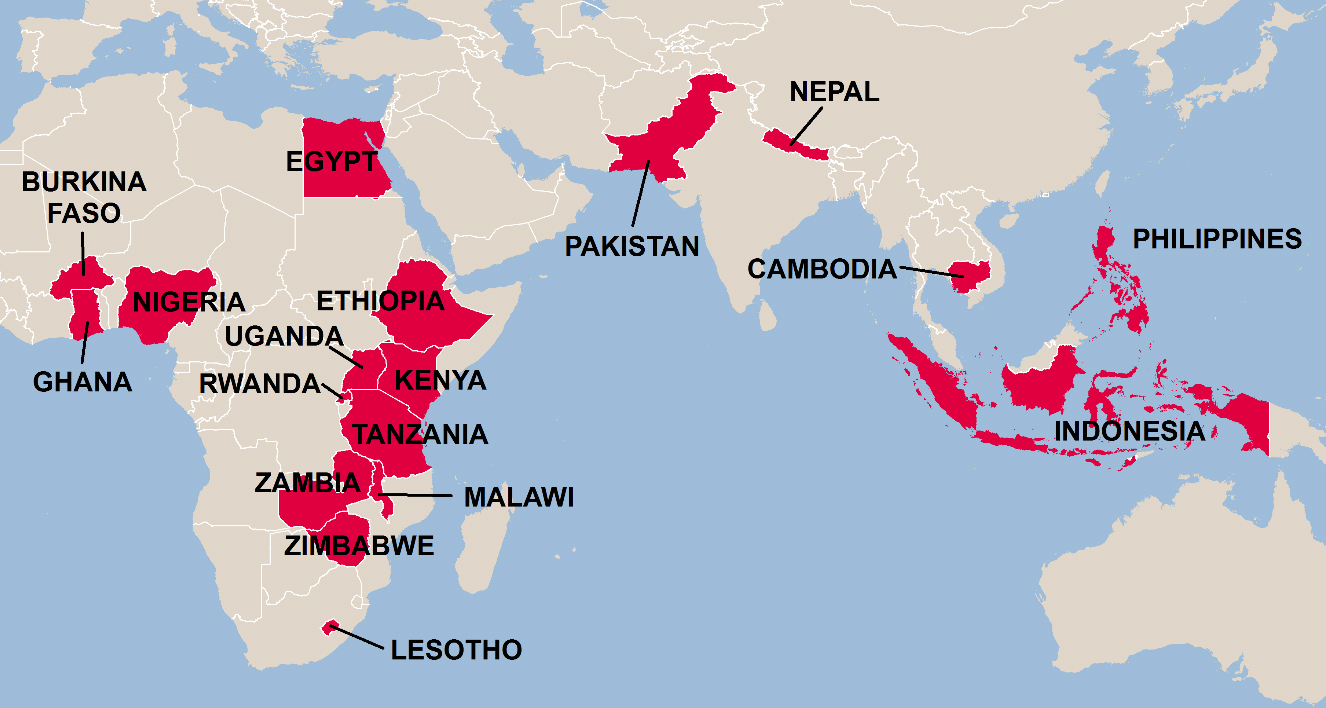The DHS Fellows Program Continues in both Asia and Africa in 2018

The overarching objective of the DHS Fellows Program is to build institutional capacity of universities in DHS countries to analyze DHS data. The underlying belief of the DHS Fellows Program is that by working with university faculty, whose job is to educate the future government officials, policymakers, and program managers in their countries, the program will create sustainable capacity in the country for the use of DHS data.
 Since 2011, the Fellows Program has trained about 100 researchers from over 30 universities in 18 DHS countries in Africa, Asia, and the Middle East. Fellows have produced a number of high-quality research papers that are published on The DHS Program website. Most of these papers have been published in peer-reviewed journals.
Since 2011, the Fellows Program has trained about 100 researchers from over 30 universities in 18 DHS countries in Africa, Asia, and the Middle East. Fellows have produced a number of high-quality research papers that are published on The DHS Program website. Most of these papers have been published in peer-reviewed journals.
In addition to producing sound research based on DHS data, the Fellows Program has substantially increased institutional capacity to analyze DHS data through the Fellows’ capacity strengthening activities in their home universities. Fellows have integrated DHS data into the curriculum, held department seminars and research meetings for DHS data sensitization, mentored graduate students to use DHS data in dissertations, and conducted DHS data analysis workshops for students and/or faculty. Many of these activities continue after the Fellowship ends. For example, Nigerian Fellows from Obafemi Awolowo University have conducted their own annual training on DHS data analysis since 2012 and trained over 100 participants from a variety of organizations in Nigeria to use DHS data.
The Fellows Program has primarily focused on universities in sub-Saharan African countries, but in 2017, the Program was implemented in Asia and the Middle East.
Six teams from Cambodia, Egypt, Indonesia, Nepal, Pakistan, and the Philippines analyzed DHS data to address a variety of research questions including contraceptive use dynamics in Egypt, postpartum family planning in Nepal, women’s empowerment and maternal health service utilization in Southeast Asia, low birth weight in Cambodia, and use of traditional contraception in the Philippines. Before the Fellowship ended, five teams had submitted their papers to peer-reviewed journals. We look forward to seeing their research published in more journals and contributing to related literature.
In 2018, we are pleased to announce that the DHS Fellows Program will cover both Asia and sub-Saharan Africa. We are currently accepting applications from Afghanistan, Cambodia, Ethiopia, Malawi, Myanmar, Nepal, South Africa, Timor-Leste, and Zimbabwe. Click below to apply on The DHS Program website. Leave any questions or comments below and let us know if you applied!
Photo caption: Participants from the 2017 DHS Fellows Data Users Workshop in Bangkok, Thailand.


thank you very much. it is very important and wecoming idea for accademics in universities.
Fine!
Thank You very Much!
I do have experiences in analyzing data of DHS and also very interested in using this comprehensive resource. It is my pleasure to be involved in this very interesting activities.
This time i think Pakistan is not included in Asian countries. was looking for learning process !!!!
Pls are you taking applications from Nigeria?
Not at this time, but continue to visit the DHS Fellows Program page for more updates for the 2018 Program!